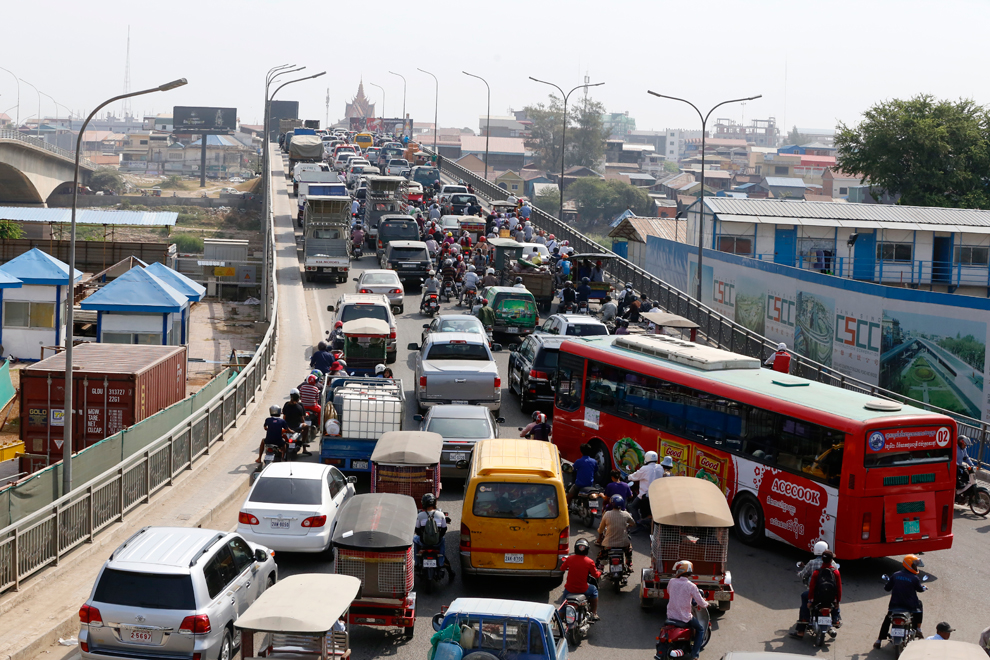
Traffic jam a long Monivong Bridge, Phnom Penh City. Heng Chivoan
Sar Thet, the head of the Phnom Penh Municipal Police, has reorganised the duties of the capital’s traffic officers to tackle the city’s growing congestion, with a focus on those who refuse to obey the road laws.
Street vendors who clog Phnom Penh’s pavements are also in Thet’s sights as he unveiled moves to ease the capital’s traffic woes.
Phnom Penh’s traffic police are to be out in force in the morning, lunchtime and the evening rush hour, and focus on areas notorious for traffic snarls.
Instructed to move around on their motorbikes to ease congested areas, officers are to crack down on those who drive on the wrong side of the road, adding to jams.
Thet, also the deputy chief of the National Police, said the practice of officers hiding in wait to fine people who infringe traffic regulations is to be eliminated, as is fining them above the amount stipulated by law.
He added that entrances to Phnom Penh would be targeted to keep traffic moving during major holidays.
However, Thet said road users must obey traffic laws.
“The most important thing is that cars and motorbikes follow the traffic laws, otherwise nothing will change even if 10,000 traffic policemen are added.
“It is very important to tell people, students and government officials to obey the law. Don’t turn on the wrong side of the street, don’t jump traffic lights, don’t overtake recklessly. If you don’t violate the law then everything will be good,” he said, adding that street vendors are a major cause of traffic jams.
“We don’t want to remove or affect them, but we want to educate them not to sell their products on the roadside. If what you sell is good, you can sell it from your home and people will still go and buy from you."
“Leave the pavements for pedestrians. In some areas, they don’t respect the law – all of us need to follow the law and maintain public order,” he said.
Asia Injury Prevention (AIP) Foundation director Kim Pagna told The Post that there were a number of reasons behind Phnom Penh’s traffic problems, including an increase in the number of vehicles on the road, infrastructure issues and drivers not obeying the traffic laws.
“People not obeying the traffic laws is a very serious issue. For example, they park their cars at restaurants, taking the public sidewalk for their personal use."
“Other problematic behaviour includes not obeying traffic lights and driving the wrong way. The government should encourage people to use public transport to prevent traffic jams,” Pagna said.
Lim Sokchea, Coalition for Road Safety senior adviser, told The Post on Tuesday that he was optimistic the new measures would ease Phnom Penh’s traffic problems, with authorities enforcing the law better and changing people’s driving behaviour.
“The moves look positive. We need to wait and see the results. If they prove effective, other provinces should follow,” he said.














